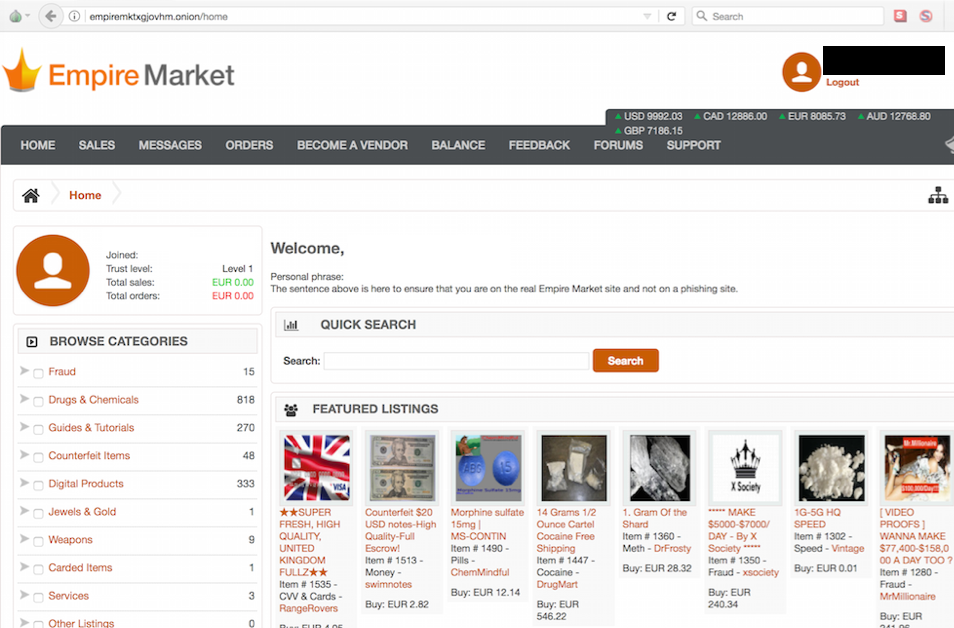**Empire Market Co-Founder Faces Mandatory 10 Years to Life in Prison After Guilty Plea**
Raheim Hamilton, the co-founder of the notorious dark web marketplace Empire Market, has pleaded guilty to a federal drug conspiracy charge in Chicago. The 30-year-old from Virginia is facing a mandatory minimum sentence of 10 years to life in prison.
The platform, which operated from 2018 to 2020, allowed users to anonymously buy and sell illicit goods, including illegal drugs, stolen credentials, personal data, counterfeit money, and hacking tools. Empire Market handled over four million transactions worth more than $430 million, with nearly $375 million of that coming from drug sales alone.
As part of his plea agreement, Hamilton admitted that the site was designed to evade law enforcement and launder criminal proceeds using cryptocurrency only. He also agreed to forfeit large amounts of Bitcoin, Ether, and properties as part of the deal.
The investigation into Empire Market was led by U.S. law enforcement agencies and resulted in the seizure of $75 million worth of cryptocurrency at the time of the seizures, as well as cash and precious metals. Hamilton's co-founder, Thomas Pavey (aka "Dopenugget"), is also facing similar charges and penalties.
Empire Market was a major player on the dark web during its operation, allowing users to pay for illicit goods using Bitcoin, Monero, and Litecoin. The platform featured multiple categories of illicit goods, including software and malware, credit card numbers, and more.
When Empire Market shut down in 2020, many users were left without access to their funds, with some blaming a prolonged denial-of-service (DDoS) attack and others suspecting an exit scam. The investigation into the platform's operators has been ongoing, with Pavey and Hamilton facing charges for five counts, including drug trafficking, computer fraud, access device fraud, counterfeiting, and money laundering.
Sentencing for Hamilton is scheduled for June 17, 2026, while Pavey is set to face a similar penalty after pleading guilty last year. The case serves as a reminder of the growing threat of dark web marketplaces and the importance of law enforcement's efforts to combat these illicit platforms.
**Key Details:**
* Empire Market co-founder Raheim Hamilton pleaded guilty to a federal drug conspiracy charge in Chicago. * Mandatory minimum sentence is 10 years to life in prison. * Platform handled over four million transactions worth more than $430 million. * Nearly $375 million of that came from drug sales alone. * Investigation led by U.S. law enforcement agencies resulted in the seizure of $75 million worth of cryptocurrency and more.
**Follow me on Twitter:** @securityaffairs
**Facebook:** [link]
**Mastodon:** [link]
